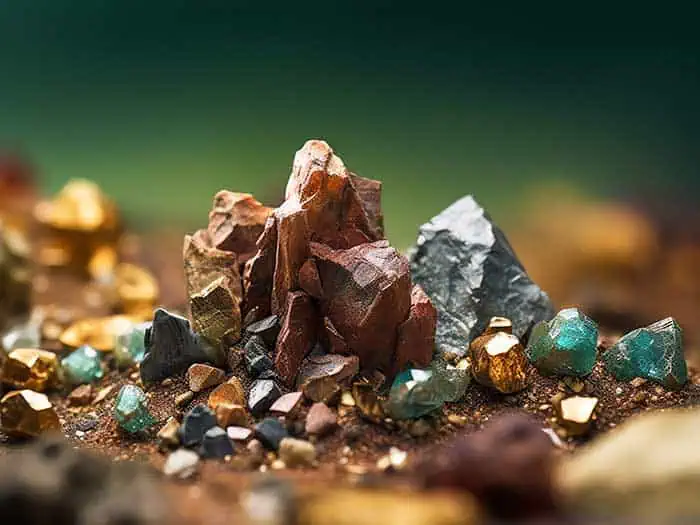


SCS Engineers is working to complete a regional assessment of rare earth elements and other critical mineral (CM) opportunities within parts of Iowa, Kansas, Missouri, Nebraska, Oklahoma, and the Osage Nation as part of a multi-state effort led by the Kansas Geological Survey (Critical Minerals in Coaly Strata of the Cherokee-Forest City Basin | netl.doe.gov).
This project is part of a multi-year Carbon Ore, Rare Earth, and Critical Minerals (CORE-CM, FOA-0002364) initiative funded by the U.S. Department of Energy to address all aspects of establishing a domestic critical mineral supply chain and the reuse of high-value, nonfuel, carbon-based resources. SCS Engineers is working with stakeholders within the Cherokee-Forest City Basin to develop assessments and strategies for waste stream reuse, infrastructural capacities and capabilities, technology development, outreach, and public-private partnerships.
The work from this project will identify information, technology, and infrastructure gaps that will need to be addressed to develop economic opportunities for critical mineral production, refining, and utilization specific to the Cherokee-Forest City Basin. These assessments may be utilized in future Phase II and Phase III components of the planned CORE-CM program for potential implementation within the region.
This study along with others have the potential to reduce U.S. reliance on foreign sources of critical minerals that are essential for electronics, renewable energy technologies, advanced manufacturing, and defense applications. It could also provide coal mines with additional markets for their product, transforming coal from something that is burned into a 21st century feedstock for advanced manufacturing.
Department of Energy Program Goals and Funding
Some research efforts are focused on unconventional and secondary feedstocks, such as coal and coal refuse, coal fly ash, acid mine drainage, mine waste, oil- and gas-produced waters, and brines extracted as part of carbon sequestration efforts. These feedstocks are known to contain elevated concentrations of CMMs, potentially in economic quantities, however their occurrence and distribution is not well constrained.
In April 2024, the U.S. Department of Energy’s (DOE) Office of Fossil Energy and Carbon Management (FECM) announced up to $60 million in funding to create regional teams to support the development of critical mineral and materials supply chains and novel high-value, nonfuel carbon-based products from unconventional and secondary feedstocks, such as coal and coal by-products, effluent waters from oil and natural gas development and production, and acid mine drainage. Realizing the critical mineral and materials potential in these feedstocks would enable the United States to rebuild a domestic supply chain for rare earth elements and other critical minerals and materials—which support high-tech manufacturing and the production of components for clean energy technologies—and reduce our dependence on international supply chains.
The funding period is now closed but projects selected under this funding opportunity will be announced in October and will continue the work of DOE’s CORE-CM Initiative, and expand the focus from the basin scale to a larger, regional scale. CORE-CM projects will develop and implement strategies that enable each specific basin to realize its full economic potential for producing REE, CM and high-value, nonfuel, carbon-based products from basin-contained resources.
Learn More Here:
